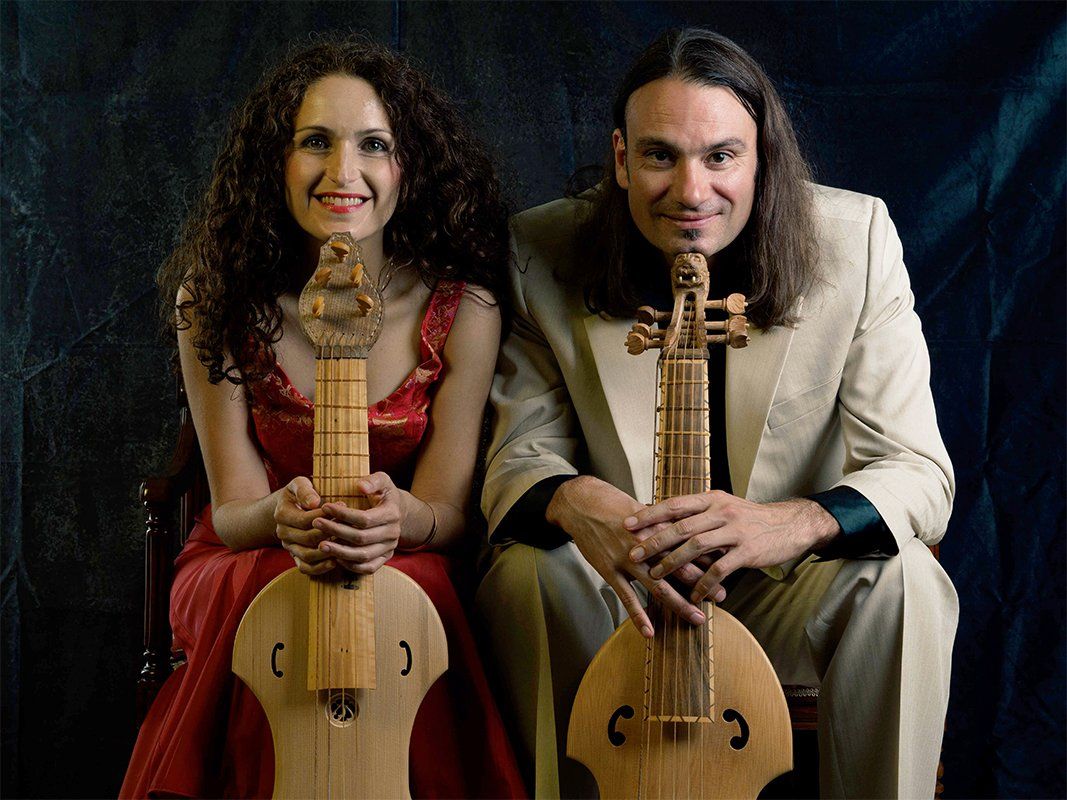Bio

Cantar alla Viola, the art of accompanying the voice with the bowed vihuela or viola da gamba, is the largely-forgotten technique of using a bowed instrument to play polyphony and harmony as an accompaniment to the voice. The rediscovery of these methods of accompaniment inspired Nadine Balbeisi, soprano, and Fernando Marín, viola da gamba, to create their duo of the same name. Detailed descriptions of the practice of this delicate manner of accompanying the voice are found in sources such as Regola Rubertina by Sylvestro Ganassi (1542) and in Il libro del cortegliano by Baldassare Castiglione, Venezia (1528).
As suggested by Ganassi’s instructions, Fernando Marín adapts madrigals and songs from the Renaissance and early Baroque for the voice and viol. Since 2004 the duo has researched and made use of the different kinds of violas da gamba used to accompany the voice, such as the Spanish Vihuela de arco, the bowed version of the Vihuela de mano (plucked), and the English Lyra-viol. All instruments used by for the duo have been historically reproduced following the shapes and dimensions as well as building techniques of original instruments. Historical bows and strings are just as carefully researched and selected. The harmonies of the instrument are sustained by using a special bow technique, which creates a sound that mixes well with the human voice.
Cantar alla Viola has performed in festivals and concert series in the US, the UK, Belgium, Germany, Spain, and the Czech Republic. The duo has been a finalist on two occasions in the competition for early music in Antwerp International Young Artist’s Presentation. Through their extensive research of the repertoire for this combination they have encountered lesser-known composers whose works they have introduced in concert and on their total of 6 critically acclaimed CDs: The Complete Polyphonic Works of Juan Blas de Castro (1561-1631), Robert Jones: The Second Booke of Songs and Ayres (1601) and The Vihuela de arco in the reign of Aragon, in commemoration of the 400th year anniversary of The Second Book of Songs and Ayres" (1612) by William Corkine, Each Lovely Grace. The Italian Renaissance album Segreti accenti was nominated for the International Classical Music Awards.
The latest release is the CD 15th Century Song and the Bowed Vihuela which displays gems of 3-voice polyphony from the courts of Europe.
"...an almost-lost practice of the Renaissance — how to take a multi-part vocal work and play it with just a solo voice and a viola da gamba — it is worth its weight in gold."
Early Music America


